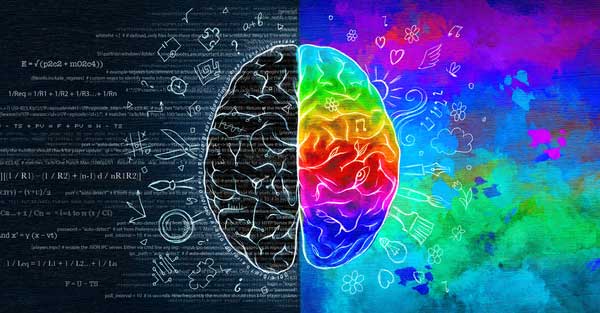Literacy is an extraordinary gift to people and societies.
In 1439, Johann Gutenberg was tinkering around with an old winepress and adapted it to become the first movable-type printing press. His invention lit the fuse on a reading revolution. The wide distribution of ideas became possible for the first time in human history, and the mass production of books made it harder to suppress the flow of thought among common people. Printing led to a higher degree of accuracy and standardization of texts. The decrease in the cost of books made it possible for people to learn outside the traditional educational system. In short, reading and writing came within the reach of the masses, thus fueling unprecedented intellectual development, distributing political influence beyond the privileged elite, an improving overall economic security. Literacy is an extraordinary gift to people and societies.
The Downside of Literacy
However, there is a dark side to literacy. If pushed too far, literacy with its focus on the intellect has a tendency to diminish the perceived value of our heart and emotions as pesky little distractions. The unintended outcome of literacy-driven rationalism is that people have been conditioned to overuse one hemisphere of the brain over the other.
The Two Hemispheres of the Brain
The topic of the difference between the two hemispheres of the brain – the right hemisphere and the left hemisphere – has fascinated people for thousands of years. Discussions about the similarities and differences between the brain’s two hemispheres are in no short supply. In comparing two computers, for example, it is true that there are far greater similarities between a Mac and a PC as a whole than there are differences between, say, their microprocessors. From this perspective, Iain McGilchrist, a researcher in neuroimaging at Johns Hopkins University, reasserts that both hemispheres seem to be involved in one way or another in almost everything we do; however, he also shows a fundamental difference between the hemispheres regarding the type of attention they give to the world.1
McGilchrist demonstrated that the two hemispheres are “asymmetrical”; that is, they specialize in different functions. Whereas the right hemisphere is attuned to the apprehension of new input from one’s environment, the left tends to see things abstracted from context. The two hemispheres are intended to function in a back and forth “reverberative” fashion. In other words, the left hemisphere is supposed to respond to outside signals received by the right hemisphere to create logical categories that make sense out of life. In turn, the right hemisphere provides further real-time input through sensory experience and intuition (story) that continually adjusts the left hemisphere’s conceptual frameworks. The brain functions at its best when the two hemispheres are collaborating and cooperating. Without the left hemisphere, we could live like animals without being able to pause and consider. Without the right hemisphere, we can float off like an observing eye, detached from the real world around us.
McGilchrist makes the case that all previous societies started with experience (a right hemisphere function) and moved to abstract reasoning (a left hemisphere function). However, Descartes and the Enlightenment tragically shifted the starting point in our thinking. Despite all their contributions, Enlightenment scholars had a preference for rational thinking (left hemisphere) and were suspicious of experience (right hemisphere). Modernists put excessive and misplaced rationality before metaphor, so the West eventually became a lead-with-the left culture.
That’s a problem. According to McGilchrist, the left hemisphere often overshadows the right hemisphere, and operates as though it is bringing things about entirely on its own with sophisticated language and concepts. In other words, the left ultimately says to the right, “Who needs you?”
Mike Metzger of The Clapham Institute maintains that there is an even bigger dilemma; that is, it is only in the “right brain” that we experience the world as it truly is. The left merely explains experience, creating meaningful categories from the real world. But acting on its own, the left hemisphere becomes unaware. Cut off from the right hemisphere and fresh experiences, the left learns nothing new. It just keeps recycling old information. Yet as Metzger says, “If your head never tilts, your mind never changes.”2 The problem becomes acute when a lead-with-the-left society becomes trapped in the left-hemisphere, literacy-based, superficial world.
Leaders from several East and West African nations recently told me that story plays a vital role in both shaping and preserving their cultures.
Like all communities, most of their shared core beliefs are passed from generation to generation through true stories, legends, and songs. These narratives embody the essence of what they consider important for their children and grandchildren to know. Even as they welcome the kind of education that brings socio-economic advancement, these leaders are concerned that their communities will make the mistake of teaching the next generations with a conceptual, abstract approach that disconnects them from their own story.
These African leaders ring a warning bell for all people and societies. Though the cerebral hemispheres of our brains should cooperate, they are currently in a state of conflict. The subsequent battles between them are recorded in the history of Western culture. Along with the gift of literacy, we need to return story to its prominent place for emerging generations.
1 Iain McGilchrist, The Master and His Emissary: The Divided Brain and the Making of the Western World (New Haven, CT: Yale University Press, 2010).
2 Mike Metzger, Doggie Head Tilt Blog. Retrieved from http://www.doggieheadtilt.com.

Leave a Reply